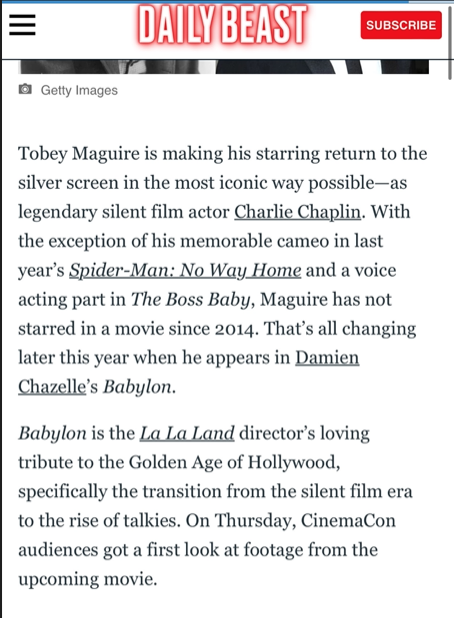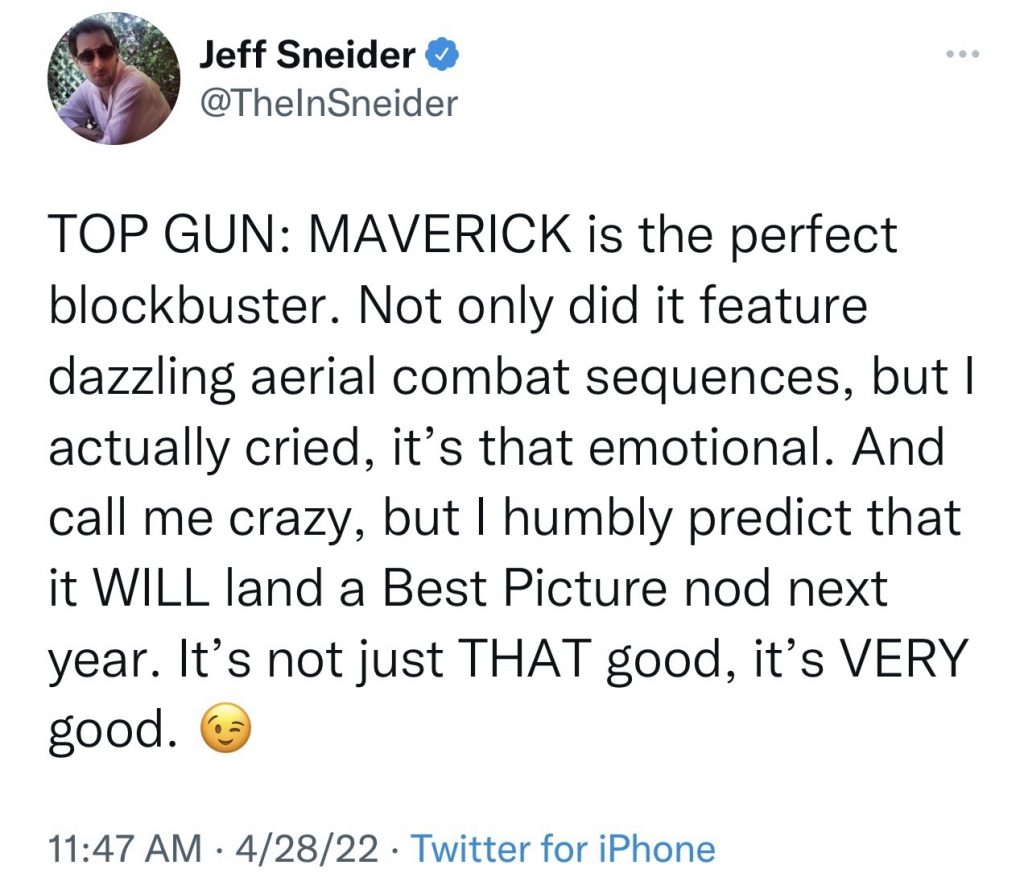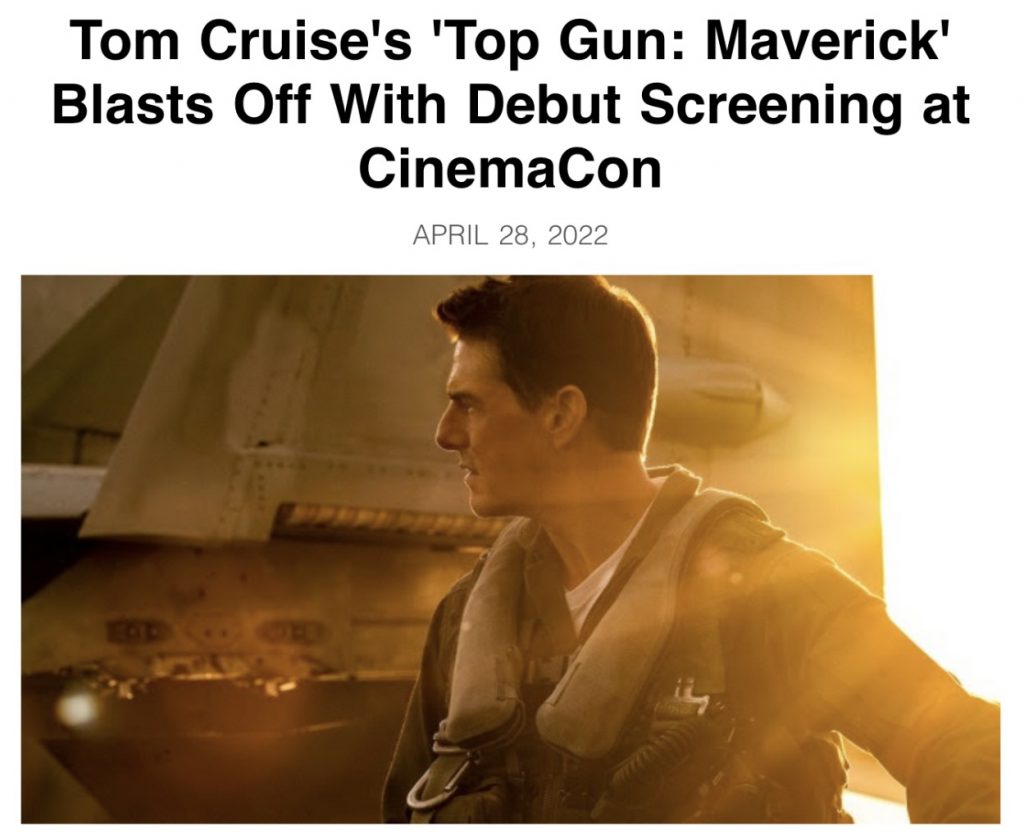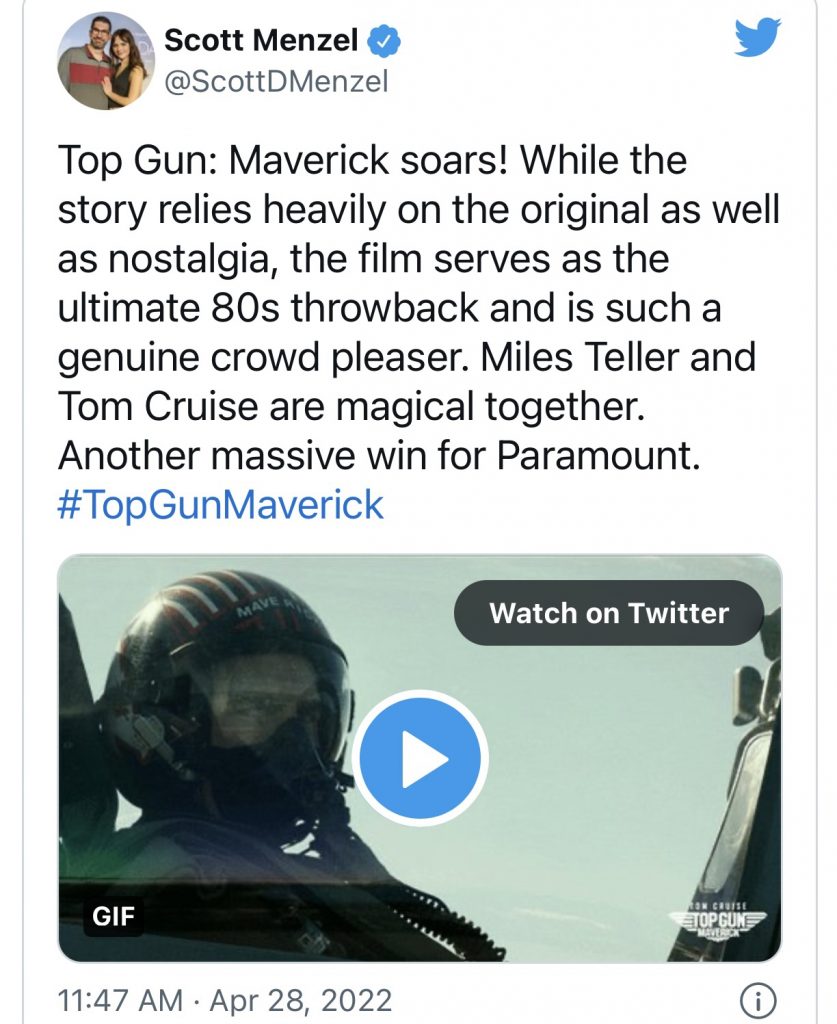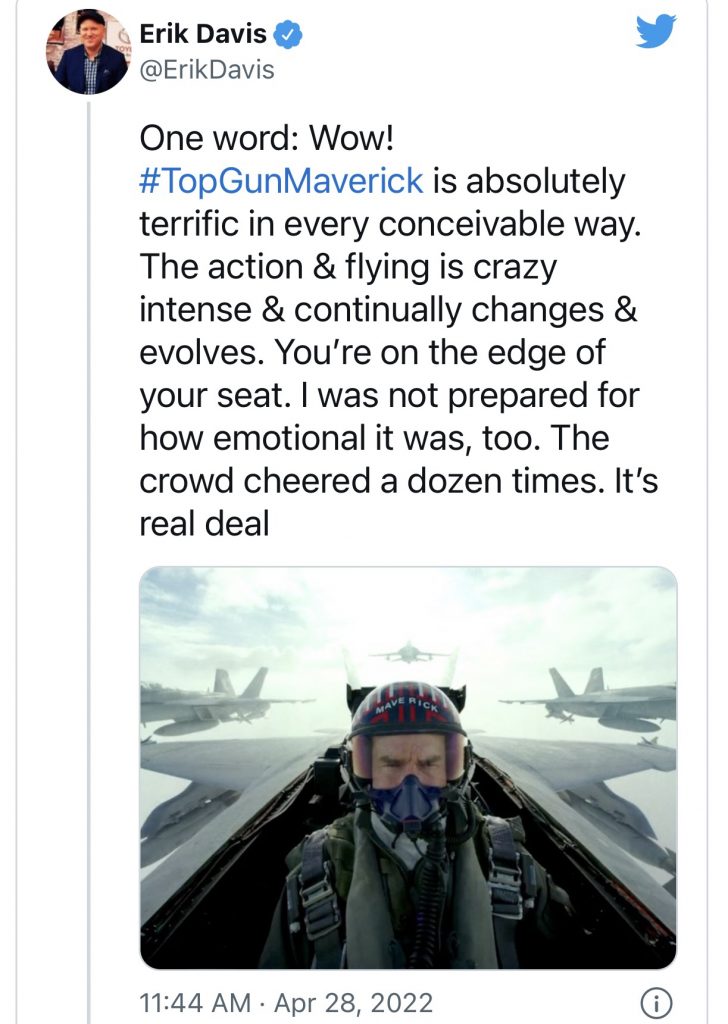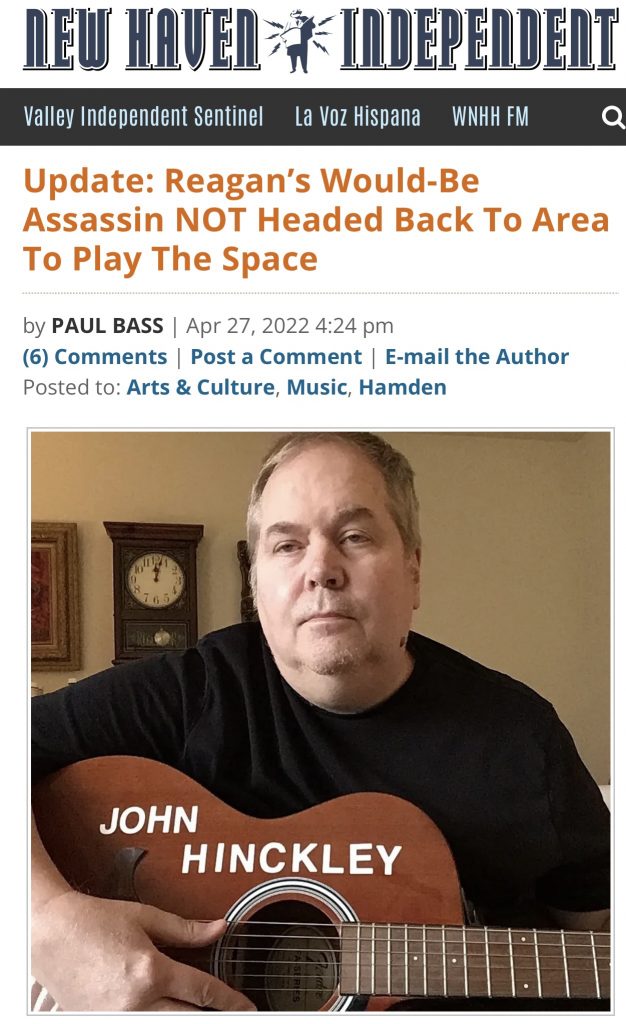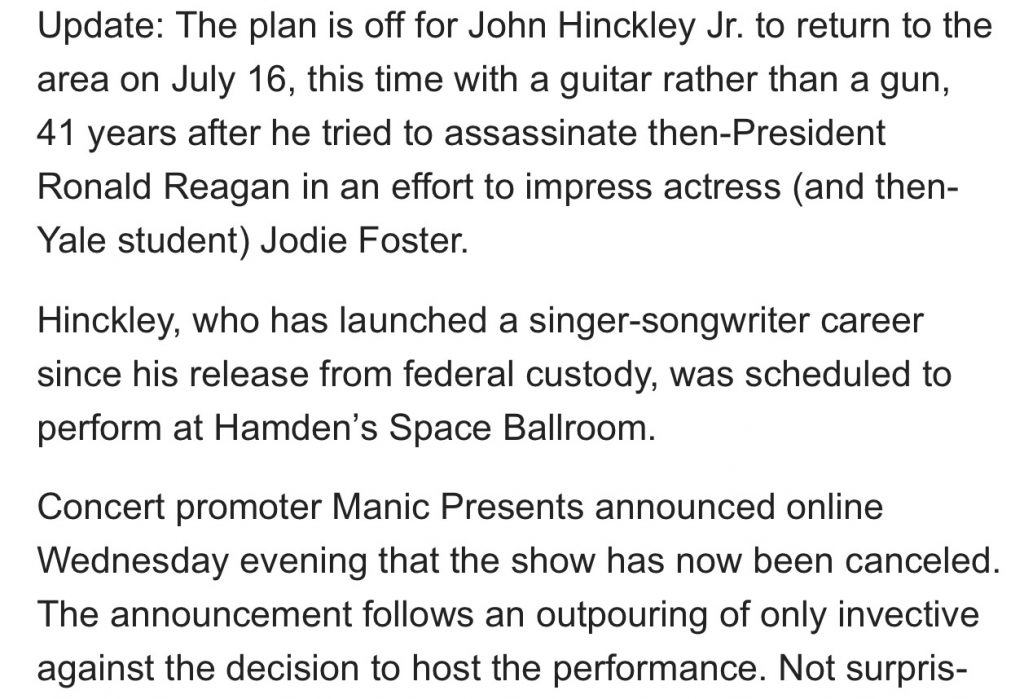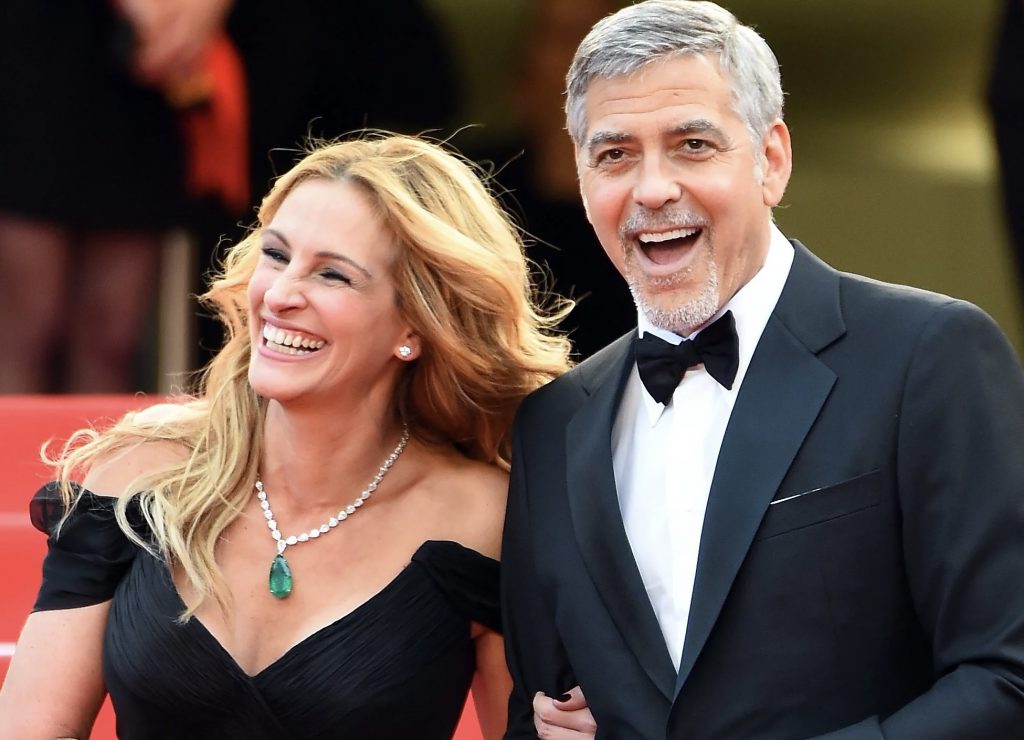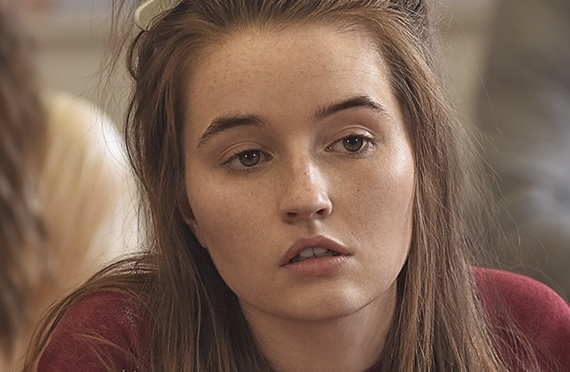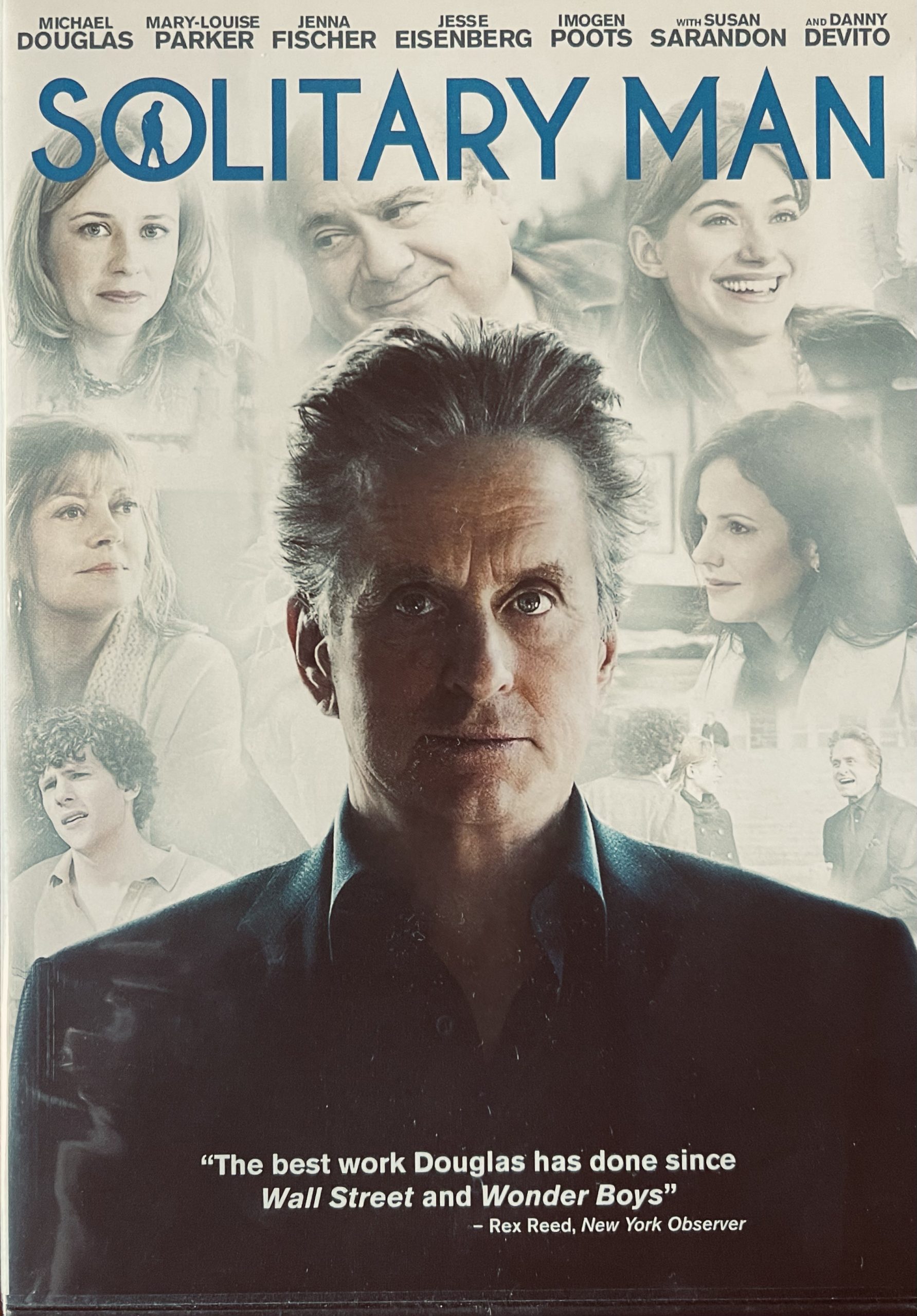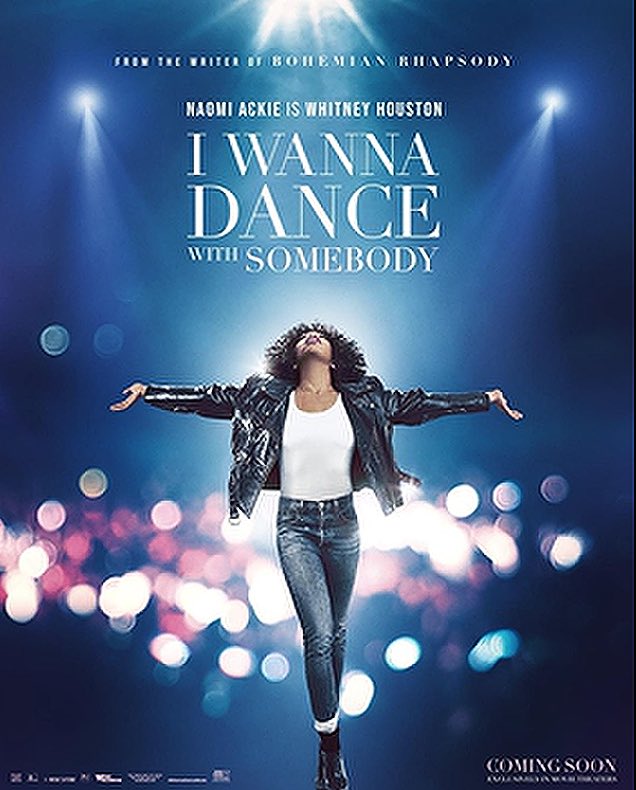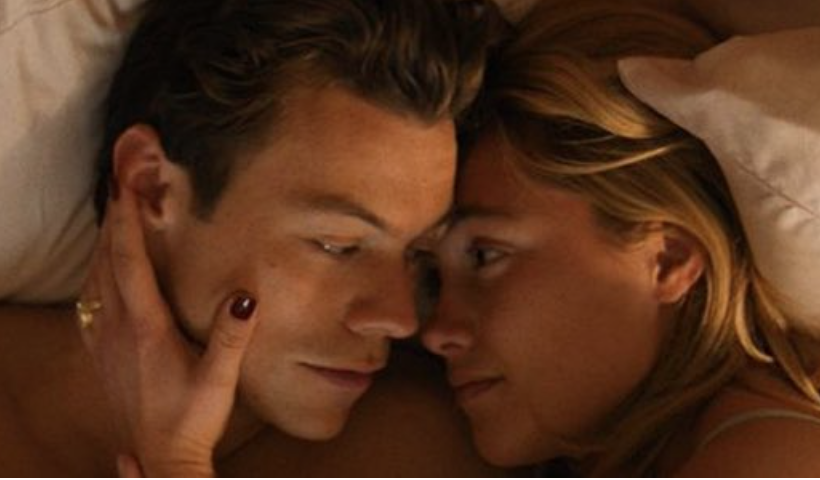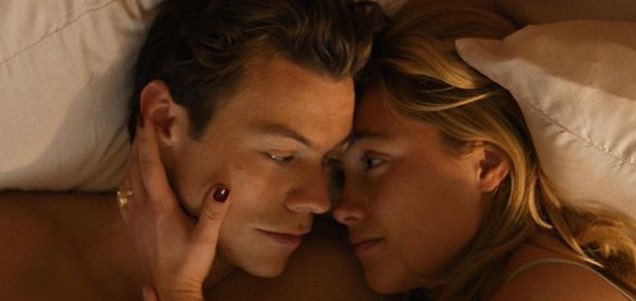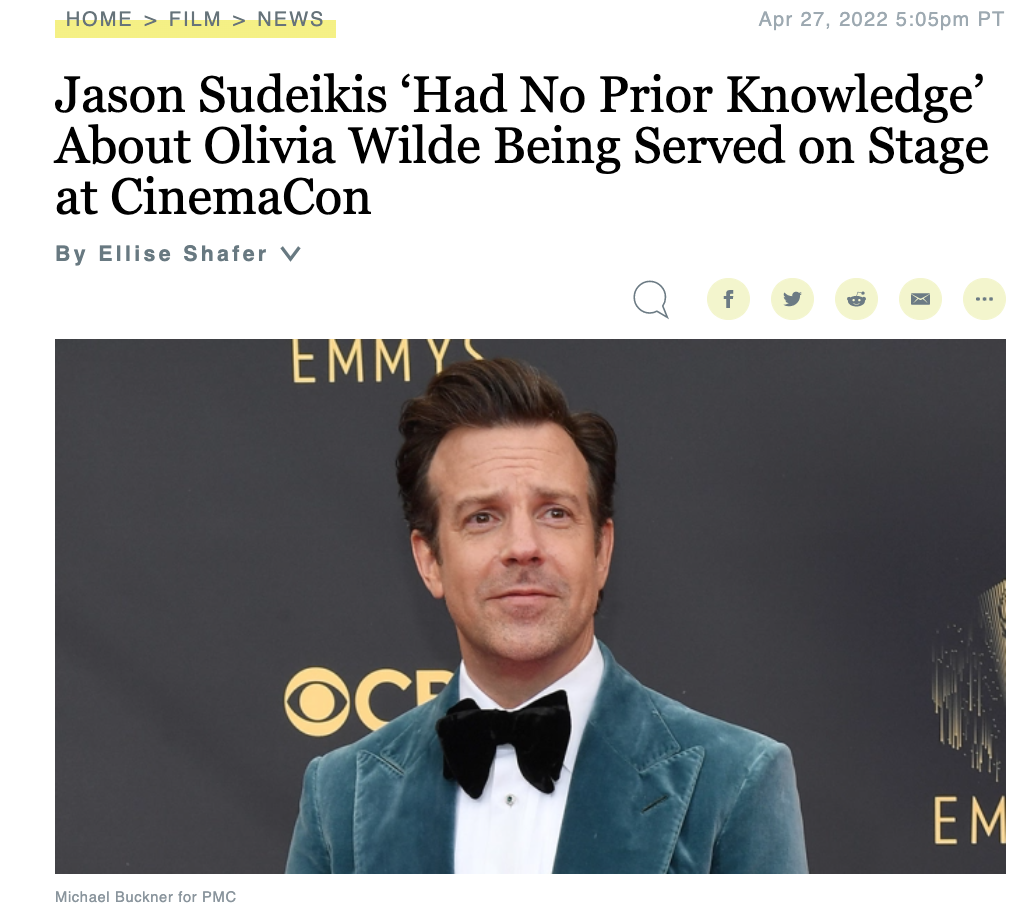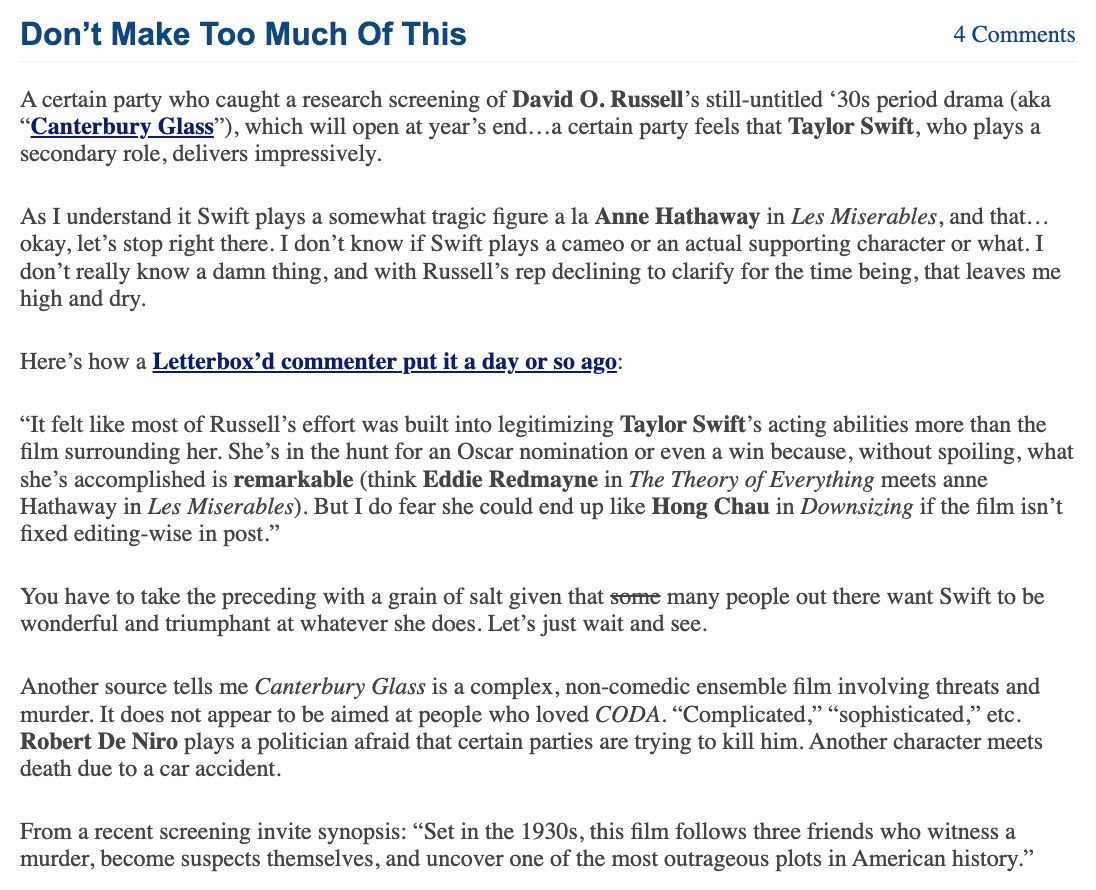Earlier today stories broke about first-peek footage from Damien Chazelle‘s Babylon that was shown at Cinemacon. The coverage is okay except for three wrongos — one in a story by Variety‘s Rebecca Rubin, and two reported by The Daily Beast‘s Jordan Julian.
I know a bit about this 12.25.22 Paramount release because (a) I have a 2019 draft of Chazelle’s script (183 pages) and (b) I’ve spoken to two people who caught a rough-cut version of Babylon at a research screening in late March.
Rubin reports that Babylon, a three-hour Hollywood epic mostly set in the 1920s and early ’30s, “puts the spotlight on Brad Pitt as silent film star John Gilbert and Margot Robbie as Roaring Twenties icon Clara Bow.” Her Robbie info is correct but Pitt plays “Jack Conrad”, a silent-film star who faces career difficulties when Hollywood transitions into sound — a character whose arc echoes what Gilbert went through.
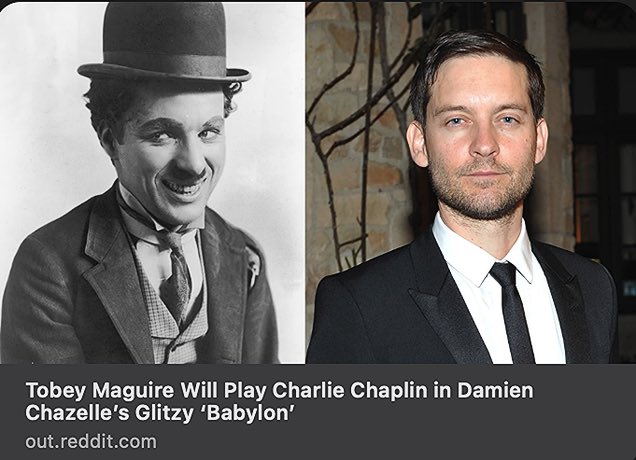
Julian claims that Tobey Maguire plays Charlie Chaplin in the film. This assertion may be correct but it’s absolutely wrong according to the two rough-cut witnesses as well as the script, in which no CHAPLIN character appears.
The witnesses say Maguire plays some sort of rich, nefarious gangster-like character who wears a pencil-thin moustache — a bad guy.
“Nothing about Maguire’s performance is Chaplin-esque,” says witness #1. “No British accent, no moustache, no bowler hat, no oversize shoes or cane.”
Julian also reports that Olivia Wilde is in Babylon “and she’s absolutely not,” says witness #1.
Excerpt from Babylon notes I wrote a month and a half ago, based on reports from witnesses #1 and #2: “It’s Vincente Minnelli meets Fellini Satyricon…a flamboyant, envelope-pushing, 185-minute version of Singin’ In The Rain, but with the songs and dancing and smiles taken out. Call it a depravity-tinged survival story about Hollywood transitioning from the silent era to sound, although ultimately spanning three decades (mid 1920s through 1952).
“It’s also been described as The Wolf of Wall Street meets Singin’ in the Rain plus The Day of the Locust, the orgy sequence from Eyes Wide Shut…all combined into a ghoulash and serving the basic Singin’ in the Rain theme.”
